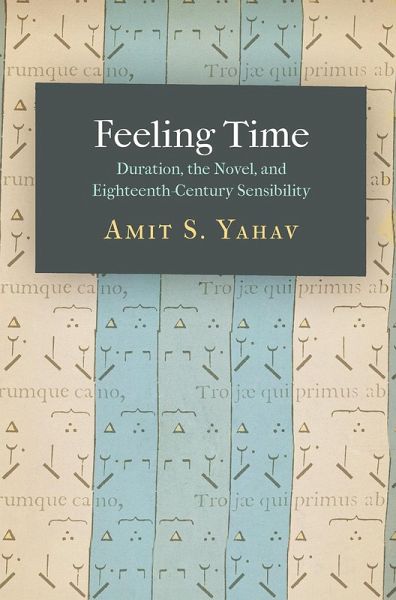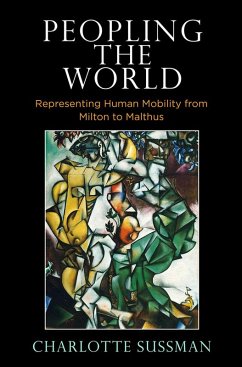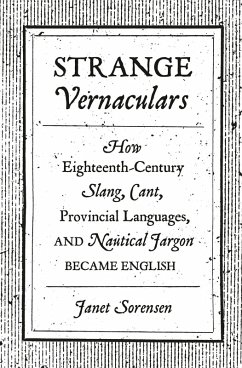
Feeling Time (eBook, ePUB)
Duration, the Novel, and Eighteenth-Century Sensibility
Versandkostenfrei!
Sofort per Download lieferbar
48,95 €
inkl. MwSt.
Weitere Ausgaben:

PAYBACK Punkte
24 °P sammeln!
Literary historians have tended to associate the eighteenth century with the rise of the tyranny of the clock-the notion of time as ruled by mechanical chronometry. The transition to standardized scheduling and time-discipline, the often-told story goes, inevitably results in modernity's time-keeper societies and the characterization of modern experience as qualitatively diminished. In Feeling Time, Amit Yahav challenges this narrative of the triumph of chronometry and the consequent impoverishment of individual experience. She explores the fascination eighteenth-century writers had with the m...
Literary historians have tended to associate the eighteenth century with the rise of the tyranny of the clock-the notion of time as ruled by mechanical chronometry. The transition to standardized scheduling and time-discipline, the often-told story goes, inevitably results in modernity's time-keeper societies and the characterization of modern experience as qualitatively diminished. In Feeling Time, Amit Yahav challenges this narrative of the triumph of chronometry and the consequent impoverishment of individual experience. She explores the fascination eighteenth-century writers had with the mental and affective processes through which human beings come not only to know that time has passed but also to feel the durations they inhabit. Yahav begins by elucidating discussions by Locke and Hume that examine how humans come to know time, noting how these philosophers often consider not only knowledge but also experience. She then turns to novels by Richardson, Sterne, and Radcliffe, attending to the material dimensions of literary language to show how novelists shape the temporal experience of readers through their formal choices. Along the way, she considers a wide range of eighteenth-century aesthetic and moral treatises, finding that these identify the subjective experience of duration as the crux of pleasure and judgment, described more as patterned durational activity than as static state. Feeling Time highlights the temporal underpinnings of the eighteenth century's culture of sensibility, arguing that novelists have often drawn on the logic of musical composition to make their writing an especially effective tool for exploring time and for shaping durational experience.
Dieser Download kann aus rechtlichen Gründen nur mit Rechnungsadresse in A, D ausgeliefert werden.













